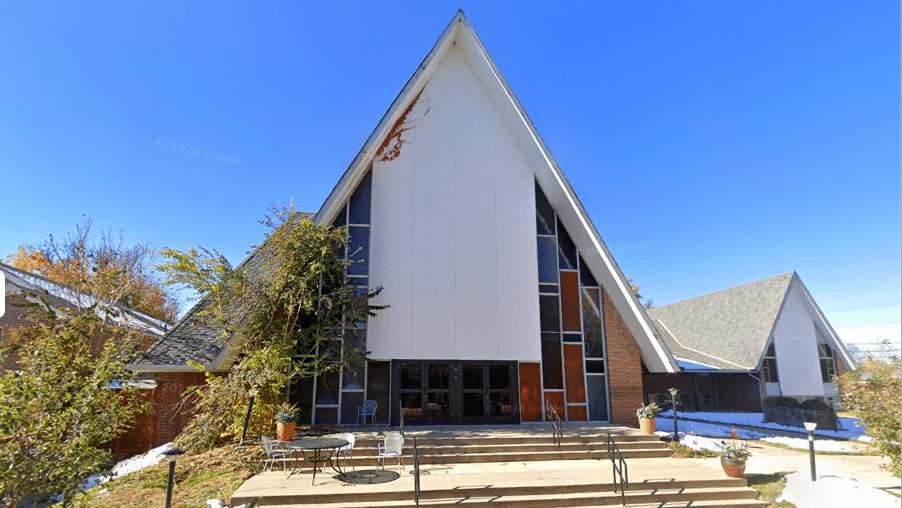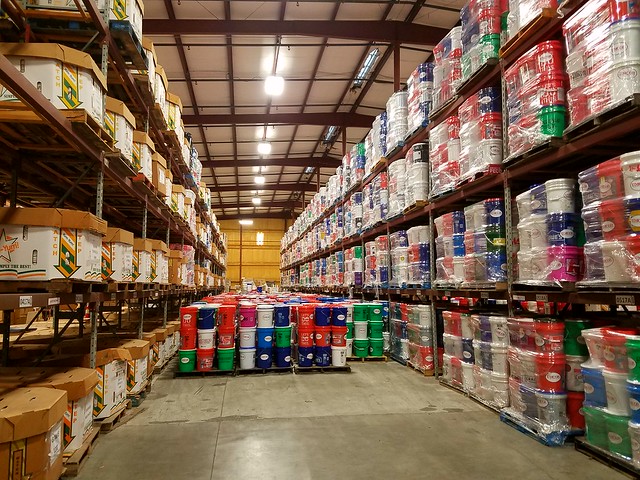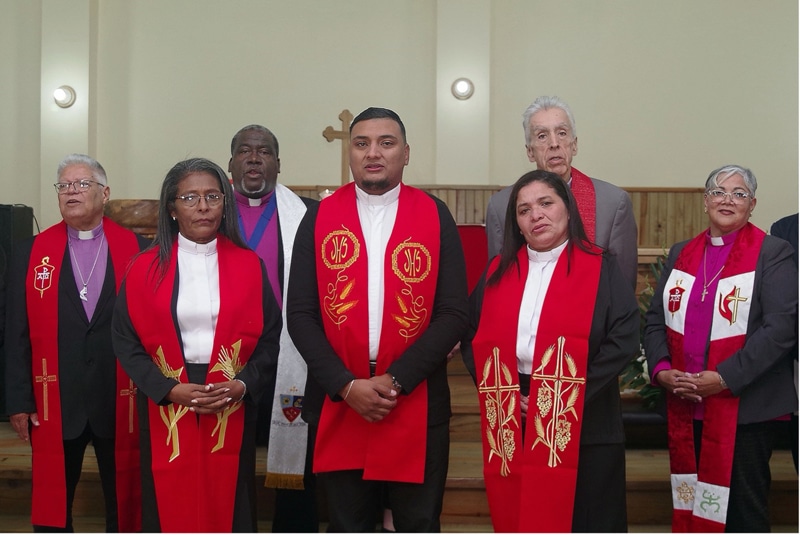“Mission innovation and local leadership are not only feeding families but also building a sustainable future.”
Roland Fernandes, General Secretary
Global Ministries and Higher Education and Ministry
From its inception in 2020, the Yambasu Agriculture Initiative (YAI) has had a double mandate. It seeks to improve food security levels in rural communities in Africa while also building sustainable agricultural enterprises within African annual conferences to support the growth of the church. Self-sustaining farm production, with enough to feed a whole community and enough left over to sell and reinvest, is its goal.
Named after the late Bishop John K. Yambasu of Sierra Leone, “It was borne out of a call to action made by African bishops,” explains YAI director, Dr. Kepifri Lakoh, “toward a sustainable and independent church through agriculture, which Global Ministries has been working toward for the past five years to make a reality.”
YAI incorporates three basic tenets in its work. First, an annual conference, community, and even individual families and farmers are meant to take responsibility for their own projects and incorporate a sense of ownership. Second, the projects need to be sustainable, with enough food to feed families in the community but enough profit to reinvest in the projects so that eventually, they sustain themselves.
The third tenet involves local solutions – projects that require technologies or assets beyond or outside a community’s capacity will not be sustainable, so managers and farmers become part of the decision-making process. They must find solutions for their animal raising or agricultural production that are locally known and available.
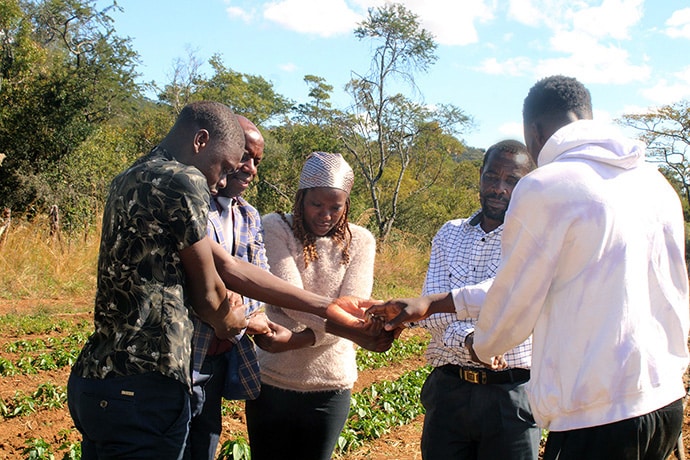
Five years of growth and production
The YAI program was approved by the Global Ministries Board of Directors in October 2020. Since YAI’s first grant in December 2020, 44 grants totaling $10.7 million have been awarded to 25 annual conferences (as well as episcopal areas or institutions) in the four African regional conferences: West Africa, East Africa, Mid-Africa and Southern Africa.
Conferences may simultaneously run training and demonstration sessions for farmers, both men and women, in their local communities while also raising revenue for their episcopal areas. Training in agriculture business methods are part of the program, and conference farms will often concentrate efforts on specializing in one type of animal or crop production that is in demand in their area.
Some of the conferences have assigned Global Missionaries who are agriculturists or highly trained in some aspect of the work to help with training, business guidance, organization and demonstration of techniques for hands-on projects. Lorraine Charinda worked on Kamisamba Farm with many levels of church members and leadership in the North Katanga Conference over a number of years. They raised its efficiency, sustainability and capacity for production.
Today, in addition to raising the income levels of farming communities in its vicinity, it has developed a successful corn seed production business that is gaining a reputation as a good quality producer. The farm recently solidified a government contract for supplying seed.
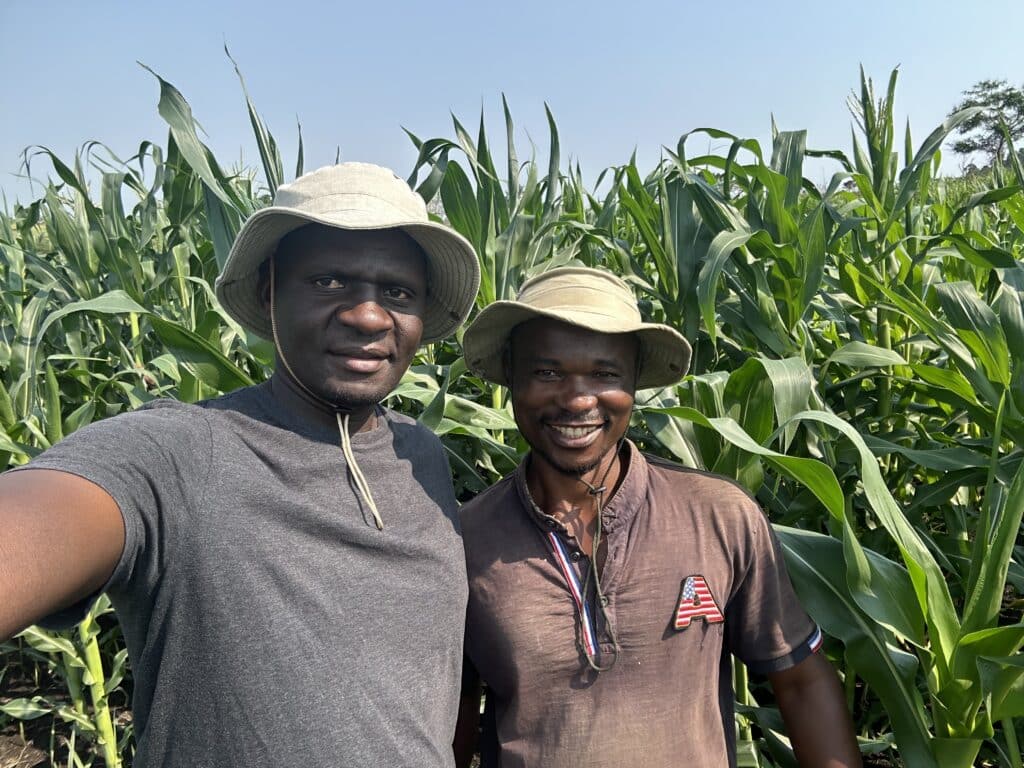
Charinda is working directly with the Yambasu Agriculture Initiative now and a second agricultural missionary, Norman Yekeye, has taken over her position at Kamisamba Farm. John Nday, with years of experience as an agricultural missionary in Mozambique, had also joined the YAI team, covering projects in Southern Africa. Salomao Augusto Capule, a missionary from Angola, is agriculture director for the Cambine Mission Center in Maputo, Mozambique.
Depth of grants in United Methodist areas
The East Africa Central Conference is the most recent area to begin a first phase of grants in several countries. Annual conferences in Uganda-South Sudan, Kenya and Burundi have begun initial projects with YAI support.
Several conferences in other regions have begun first phase projects. In the Mid-Africa Regional Conference these include Methodists in the Republic of Congo, the small country whose capital, Brazzaville, is across the Congo River from the Democratic Republic of Congo’s capital, Kinshasa; and Zambia has just been approved for a YAI grant. In addition, the Cambine Mission Station in the South Mozambique Annual Conference is slated to receive its first grant in the near future.
Both East and West annual conferences in Zimbabwe have applied for the second phase of their grants. The Hanwa United Methodist Mission Center and secondary school in Macheke has been successful with greenhouse farming, going from high-quality pepper production a year ago to include a wider range of vegetables, including tomatoes, baby marrow, broccoli and cornflower, which is all selling well at market.
In West Africa, Sierra Leone has invested YAI grants into rice production, which has become a successful business for the annual conference.
This year, agriculture departments in two universities have begun new programming with Global Ministries’ partnership through YAI, Africa University in Zimbabwe and Katanga Methodist University in the DRC. Africa University (AU) and Global Ministries have entered into a four-year partnership to support pioneering research and innovation in agriculture and public health – two of the most pressing areas shaping the continent’s future.
The Katanga Methodist University initiative will establish a sustainable pathway for the university to enhance its resilience. The project will generate consistent income through agricultural activities, fulfilling the university’s operational needs and addressing local food insecurity affecting nearby communities.
Back to basics – food
The Yambasu Agriculture Initiative, through grants and training, mobilizes existing land and human resources within the church; improves community livelihoods and food security long-term; and builds capacity in annual conferences toward long-term financial solvency. From seeds in the ground to food on the table, YAI supports the hard work of people who seek to solve food security in their own communities.
This season, give a gift to ensure food security and establish healthy livelihoods.

